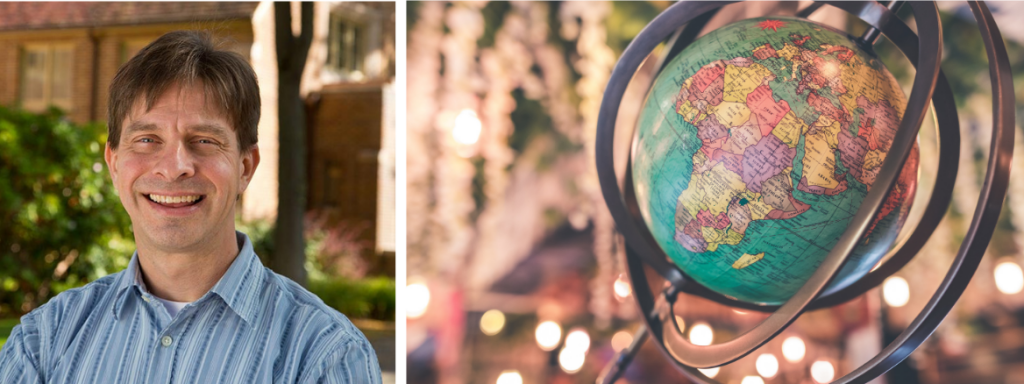Page 354 • (12,484 results in 0.055 seconds)
-
and I do in our experiments actually bears many parallels to cooking. By varying the amounts or types of ingredients, the order we add them to the pot, and the time and temperature we heat or cool them, we work to eventually perfect the finished dish – the target compound. Safety goggles aren’t powerful enough to actually let us see compounds we make. And, unlike the chemists of the early 1900s, we don’t taste our products in the lab anymore, either. We must use special instruments to help us “see
-
Restoration in Chambers-Clover Creek WatershedBy Chelsea Escalante, Brennan LaBrie, Emma Mickelson, and Aaron Pantoja Clover Creek, which trickles out of a natural spring near Frederickson and journeys through Parkland and Lakewood before emptying out in Lake Steilacoom, might be unrecognizable to those who knew it over a century ago. Residents along the creek in the early 20th century recall a thriving creek that would flow year-round and was ideal for fishing and swimming during the warm
-

other crowdsourcing initiatives,” Dr. Wagge said. “He’s been an early adopter of many open science practices, a steadfast supporter of, and Ambassador for, the Center for Open Science, and an enthusiastic open science educator and mentor.” Dr. Chris Chartier, Director of the Psychological Science Accelerator (a broadscoped, crowdsourced project), has collaborated with Dr. Grahe and is also quick to recognize his contributions to the field. “Jon has been a champion of both replication efforts and
-

works is you submit a resume, cover letter, personal essay and a few other materials, all to the intern coordinators themselves. The interviews are kind of intense. There’re questions literally built to scare you. Some (senators’) offices go through interviews, but I didn’t have to do that. Sen. Liias’s office picked me. I got a notice early on that I was picked for his office, was really happy about it, and have enjoyed my time here. PLU: What kinds of things have you been doing? Knapp: I’m in
-

,” Ebi said. “Here, that meant I was off at 1:30 in the afternoon.” Those early days landed him on mountains or in the water, hiking or kayaking with a camera in tote. “Every day was like a little bit of summer vacation,” he said. “I wanted to share some of those experiences.” So, he read how-to photography books and learned how to tell compelling stories with his images. After word got out about his photos and he started getting emails from editors about using his images, Ebi realized his work stood
-

care of the Earth.” A native of the Netherlands, Tegels hails from a small town in the southeastern part of the region, called Ottersum. He developed an affinity for music early in life, learning the keyboard at the age of 13. Soon he started filling in for the organist at the local church, and from there his music career grew into a life-long vocation. Tegels earned degrees from the University of Iowa, the New England Conservatory in Boston and the Stedelijk Conservatorium in Arnhem, located in
-

connections I made will serve me for the rest of my career. If you were to offer advice to other students considering internships, what valuable insights would you share with them based on your experience? MM: The most challenging part of this internship was getting to Seattle. It isn’t easy to find housing, so be aware of that and start searching early if your internship does not provide any accommodations. Other than that, internships like this usually give you what you put into them. Also, make sure
-
volunteer your time, many of which you can find out about through your college, local churches, community newspaper/bulletin, or personal acquaintances. Academic Research Academic research experience is not required by most dental schools, but it is certainly valued. Undergraduate research will undoubtedly enhance your critical skills in communication, independent thinking, creativity and problem-solving. Whichever route you take to getting your experience, start early. Squeezing your experiences
-
volunteer your time, many of which you can find out about through your college, local churches, community newspaper/bulletin, or personal acquaintances. Academic Research Academic research experience is not required by most dental schools, but it is certainly valued. Undergraduate research will undoubtedly enhance your critical skills in communication, independent thinking, creativity and problem-solving. Whichever route you take to getting your experience, start early. Squeezing your experiences
-
Empirical Analysis of Acceleration Structures for Ray Tracing Spenser Currier (BS), Adam Rhoades (BS) Realistic rendering can take minutes, hours, or even days depending on the complexity of the scene. To meet modern demand in movies, video games, and commercials, acceleration structures for ray tracing have been designed to efficiently reduce the number of ray-triangle intersection checks necessary when traversing a scene using spatial subdivision. In this research project, we implemented acceleration
Do you have any feedback for us? If so, feel free to use our Feedback Form.


